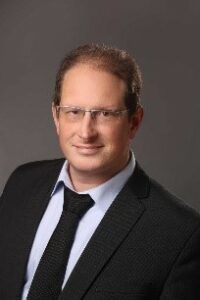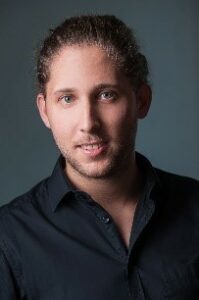Seitz Daniel
 Organisation/Department
Organisation/Department
Founder and CEO of BioMed Center Innovation gGmbH
Biography
Daniel Seitz, Dipl.-Biol., is founder and CEO of the non-profit institute BioMed Center Innovation gGmbH in Bayreuth. Before assuming this position, he has worked with tissue engineering, biomaterial development, medical modelling and certification in a material science – biology working group, learning the challenges of both worlds. His personal research focus is on cellular physiology and development in 3D environment. Apart from innovative additive manufacturing applications he has developed a concept for 3DP medical product registration.
Kainz Michael
 Organization/Department
Organization/Department
PROFACTOR GmbH
Researcher in ‘Functional Surfaces and Nanostructures’ group
Biography
Michael Kainz is a research engineer at PROFACTOR GmbH working mostly on the development of ink formulations for inkjet printing. Before assuming this position, he has studied mechanical engineering (TU Wien) mainly focusing on fluid flow simulations and structural analysis. His research interests involve bioinspired design with a strong emphasis in biomaterials and biomechanics.
Title of Talk
INKplant – Ink-based hybrid multimaterial fabrication of next generation implants
Daniel Seitz1 and Michael Kainz2
1 BioMed Center Innovation gGmbH, Ludwig-Thoma-Straße 36c, 95447 Bayreuth, Germany, dseitz@biomed-center.com
2 Profactor GmbH, Im Stadtgut D1, 4407 Steyr-Gleink, Austria, michael.kainz@profactor.at
Abstract
Experience in human tissue regeneration with engineered scaffolds-cell constructs has shown that not only individual structure, but also individual variation in matrix composition has to be accounted for in a successful treatment. It seems unlikely that any single material will have all the properties required to support tissue development. Almost all human tissues are complex combinations and gradients of materials, each with specific biological and mechanical influence. To provide certain tissue functions, additive manufacturing (AM) provides a vital tool to deposit biomaterials with high precision onto substrates to fabricate functionalized surfaces or 3D scaffolds. The vision of INKplant is to combine two well established AM techniques, namely lithographic ceramic manufacturing and inkjet printing, to fabricate patient specific implants for osteochondral defects, for meniscus reconstruction, for the cleft palate and for bone reconstruction.
In order to reach applicable results, not only ethical issues such as patient acceptance and gender-specific design are regarded, the entire process from data acquisition, implant design to printing process and packaging and transport is investigated for quality management routines and certification aspects. Thus, the different printing processes each have their own qualification issues, while their combination in a multimaterial fabrication process has its own aspects. Altogether, a new concept of registration for AM products under a CE mark is pursued. The project also actively involves in developing the standardization landscape concerning a wide field from AM quality control to biological testing and respective standard testing geometries.
